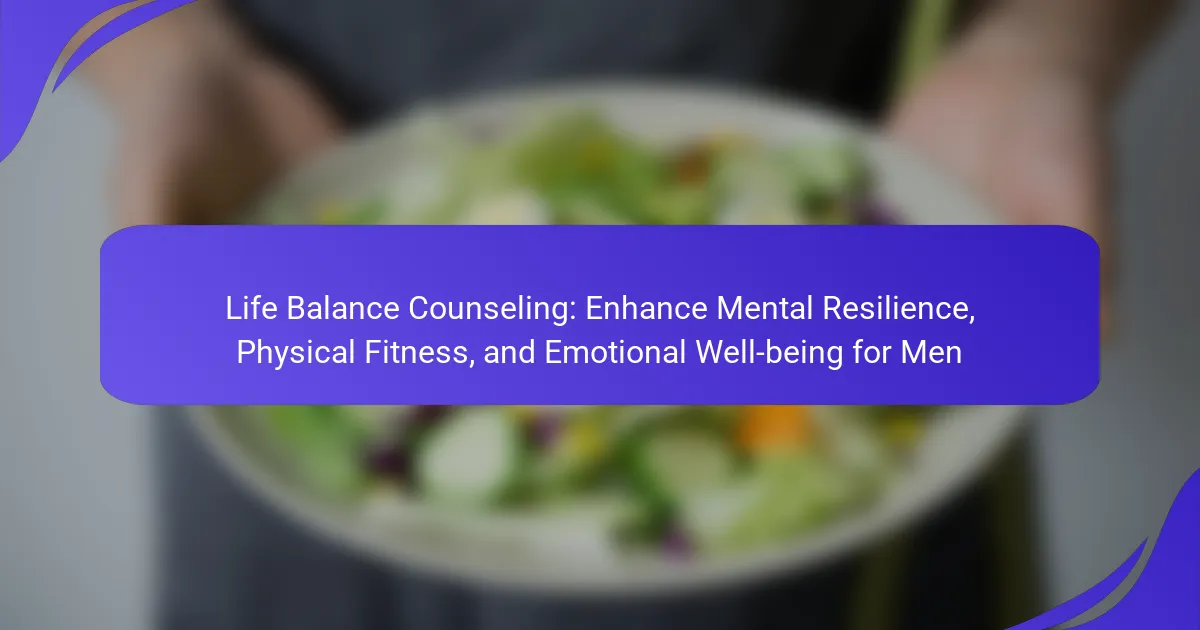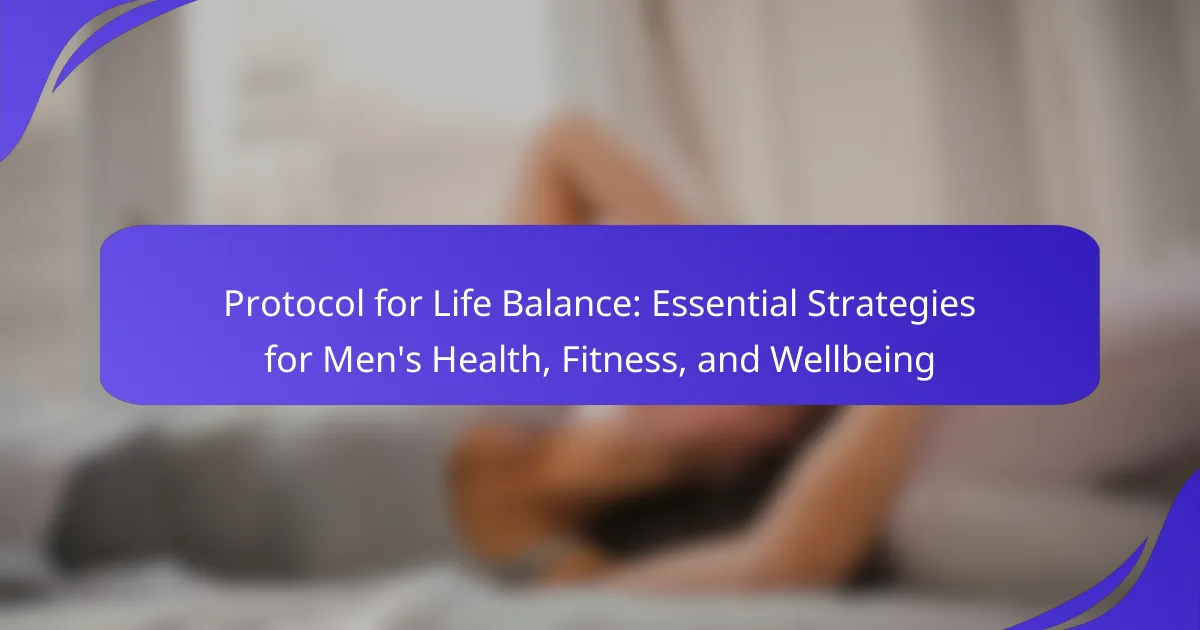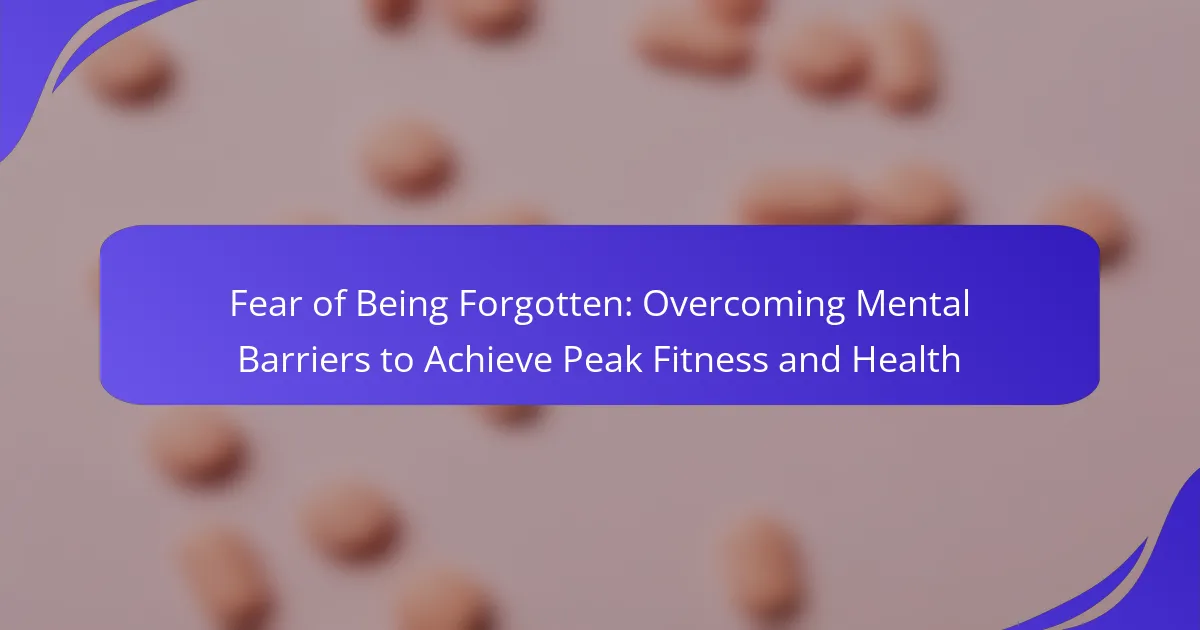Achieving life balance is crucial for men facing unique challenges like societal expectations and mental health stigma. Life Balance Counseling focuses on enhancing mental resilience, physical fitness, and emotional well-being. This approach provides practical strategies for stress management, self-awareness, and relationship building. By addressing these areas, men can cultivate a more fulfilling and balanced life.

What is Life Balance Counseling for Men?
Life Balance Counseling for Men focuses on enhancing mental resilience, physical fitness, and emotional well-being. This counseling approach addresses unique challenges men face, promoting a holistic lifestyle. It fosters skills to manage stress, build healthy relationships, and achieve personal goals. As a result, men experience improved life satisfaction and emotional health.
How does Life Balance Counseling enhance mental resilience?
Life Balance Counseling enhances mental resilience by providing structured support and coping strategies. It helps individuals identify stressors, develop emotional regulation skills, and build a strong support network. This counseling approach promotes self-awareness and fosters a growth mindset, enabling men to navigate life’s challenges effectively. As a result, participants often experience improved stress management and overall emotional well-being.
What role does physical fitness play in Life Balance Counseling?
Physical fitness is essential in Life Balance Counseling as it enhances mental resilience and emotional well-being. Engaging in regular physical activity improves mood, reduces anxiety, and fosters discipline. This holistic approach empowers men to achieve better life balance by integrating physical health with mental and emotional stability. Studies show that consistent exercise can lead to a 30% reduction in symptoms of depression and anxiety, reinforcing the unique attribute of physical fitness in overall life balance.
How can emotional well-being be improved through counseling?
Counseling significantly enhances emotional well-being by providing tailored strategies and support. It fosters resilience through coping mechanisms, promotes self-awareness, and encourages healthy communication. Clients often report reduced anxiety and improved mood, which are critical for overall life balance. Engaging in therapy can also lead to better physical fitness, as emotional stability often motivates healthier lifestyle choices.

What are the universal benefits of Life Balance Counseling?
Life Balance Counseling offers universal benefits that enhance mental resilience, physical fitness, and emotional well-being for men. This approach helps individuals achieve a harmonious lifestyle by addressing stress, improving self-awareness, and promoting healthy habits.
Key benefits include:
– Improved stress management: Techniques learned in counseling reduce anxiety and enhance coping strategies.
– Enhanced self-awareness: Counseling fosters a deeper understanding of personal values and goals.
– Increased physical fitness: Guidance encourages regular exercise and healthy lifestyle choices.
– Better emotional regulation: Counseling aids in managing emotions and building resilience.
– Strengthened relationships: Improved communication skills enhance personal and professional connections.
These benefits collectively contribute to a more balanced and fulfilling life.
How does it promote overall health and wellness?
Life Balance Counseling promotes overall health and wellness by enhancing mental resilience, physical fitness, and emotional well-being. It provides tools to manage stress, improve self-awareness, and foster healthier relationships. Participants often report increased energy levels and a greater sense of purpose. This holistic approach addresses root attributes of mental health, enabling sustainable lifestyle changes that contribute to overall wellness.
What strategies are used to develop mental resilience?
Developing mental resilience involves strategies that strengthen coping mechanisms and emotional regulation. Key strategies include practicing mindfulness, setting realistic goals, fostering social connections, and maintaining a healthy lifestyle. Mindfulness enhances self-awareness, while realistic goals provide direction. Social connections offer support, and a healthy lifestyle boosts overall well-being. These strategies collectively contribute to improved mental resilience, enabling individuals to navigate life’s challenges more effectively.
How does physical fitness contribute to emotional stability?
Physical fitness significantly enhances emotional stability by promoting the release of endorphins, reducing stress, and improving overall mood. Regular exercise fosters resilience, allowing men to better manage anxiety and depression. Studies show that physical activity can decrease symptoms of emotional distress by up to 40%. Engaging in fitness routines also builds self-esteem, creating a positive feedback loop that further supports emotional well-being.

What unique approaches does Life Balance Counseling offer?
Life Balance Counseling offers unique approaches that integrate mental resilience, physical fitness, and emotional well-being specifically tailored for men. These approaches include personalized coaching, holistic assessments, and evidence-based strategies. The focus on male-specific challenges enhances relevance and effectiveness. Life Balance Counseling emphasizes a supportive environment, fostering accountability and community among participants. This unique blend promotes sustainable lifestyle changes, empowering men to achieve balance and fulfillment in their lives.
What specialized techniques are used for men’s mental health?
Life Balance Counseling employs specialized techniques like mindfulness training, physical fitness programs, and emotional regulation strategies to enhance men’s mental health. These techniques foster resilience, improve physical health, and promote emotional well-being. Mindfulness training reduces stress and anxiety, while physical fitness contributes to overall mental clarity. Emotional regulation strategies help men manage their emotions effectively. Together, these approaches create a holistic framework for improving mental health outcomes in men.
How does counseling integrate fitness training?
Counseling integrates fitness training by addressing mental resilience, which enhances physical performance. This holistic approach fosters emotional well-being, leading to improved motivation and adherence to fitness routines. Counseling provides strategies to overcome mental barriers, allowing for a balanced lifestyle that incorporates both mental and physical health.

What rare attributes of Life Balance Counseling should men know?
Life Balance Counseling offers unique attributes that can significantly benefit men. One rare attribute is the emphasis on integrating physical fitness with mental resilience, fostering a holistic approach to well-being. This dual focus can lead to improved stress management and emotional stability. Additionally, Life Balance Counseling may provide tailored strategies that specifically address male-centric issues, such as societal pressures and identity challenges. These attributes enhance the effectiveness of counseling, making it a valuable resource for men seeking personal growth.
How does personalized counseling differ from standard approaches?
Personalized counseling focuses on individual needs, while standard approaches use a one-size-fits-all method. This tailored strategy enhances mental resilience, physical fitness, and emotional well-being for men by addressing unique challenges and goals. Personalized sessions often incorporate specific techniques and feedback, fostering deeper engagement and more effective outcomes. In contrast, standard counseling may overlook personal nuances, limiting its effectiveness.
What innovative methods are employed to tackle specific male issues?
Life Balance Counseling employs innovative methods to address specific male issues such as stress, anxiety, and physical health. Techniques include mindfulness practices, physical fitness programs, and personalized therapy sessions. These approaches enhance mental resilience and emotional well-being, allowing men to navigate life’s challenges effectively. For example, integrating physical fitness into counseling sessions has shown to improve overall mental health outcomes. As a result, men experience increased self-esteem and reduced anxiety levels.

What challenges do men face in achieving life balance?
Men face several challenges in achieving life balance, including time management, societal expectations, and mental health stigma. These factors can hinder their ability to prioritize self-care and emotional well-being. Effective life balance counseling can enhance mental resilience, promote physical fitness, and improve emotional health.
Time management issues often stem from work demands and family responsibilities. Many men struggle to allocate time for personal interests and relaxation, leading to burnout. Societal expectations can pressure men to prioritize career success over personal fulfillment, creating internal conflict.
Mental health stigma further complicates matters. Many men hesitate to seek help for emotional struggles due to fears of judgment. This reluctance can perpetuate feelings of isolation and stress.
Addressing these challenges through counseling can empower men to develop coping strategies, set realistic goals, and foster healthier relationships, ultimately leading to a more balanced life.
How can societal expectations impact men’s mental health?
Societal expectations can significantly impact men’s mental health by creating pressure to conform to traditional masculine norms. These norms often discourage emotional expression and vulnerability, leading to increased stress and isolation. Men may experience anxiety or depression when they feel they cannot meet these expectations. Research indicates that men who adhere to rigid gender roles are less likely to seek help for mental health issues, exacerbating their struggles. Life Balance Counseling addresses these challenges by promoting emotional well-being, resilience, and physical fitness, helping men navigate societal pressures effectively.
What barriers exist in accessing effective counseling?
Barriers to accessing effective counseling include stigma, cost, availability, and lack of awareness. Stigma surrounding mental health often prevents men from seeking help. High costs can limit access to quality services. Availability of counselors, especially those specializing in life balance, can be inadequate in certain regions. Lastly, many individuals lack awareness of the benefits of counseling for enhancing mental resilience, physical fitness, and emotional well-being.

What practical steps can men take to enhance their life balance?
Men can enhance their life balance by prioritizing mental resilience, physical fitness, and emotional well-being. Practical steps include setting clear goals, establishing routines, and engaging in regular physical activity.
1. Set specific, achievable goals to provide direction and motivation.
2. Create a daily routine that incorporates time for work, exercise, and relaxation.
3. Practice mindfulness or meditation to improve mental clarity and reduce stress.
4. Engage in physical fitness activities, such as running or weightlifting, to boost energy levels.
5. Foster social connections by spending time with friends and family for emotional support.
6. Seek professional life balance counseling when facing challenges to gain expert guidance.
What daily practices support mental resilience?
Daily practices that support mental resilience include mindfulness, physical exercise, and social connections. Mindfulness techniques, such as meditation, enhance emotional regulation and reduce stress. Regular physical activity boosts mood and cognitive function, contributing to overall well-being. Additionally, nurturing social relationships provides support and fosters a sense of belonging, vital for resilience. These practices collectively enhance mental fortitude, physical fitness, and emotional health for men.
How can men incorporate fitness into their counseling journey?
Men can incorporate fitness into their counseling journey by integrating physical activities that enhance mental resilience and emotional well-being. Regular exercise, such as strength training or aerobic workouts, can reduce anxiety and improve mood. Setting fitness goals alongside counseling objectives fosters accountability and motivation. Group fitness activities can promote social connections, enhancing support systems. Mindfulness practices like yoga can combine physical fitness with emotional regulation, promoting overall balance.
What common mistakes should be avoided in pursuing emotional well-being?
To enhance emotional well-being, avoid common mistakes such as neglecting self-care, ignoring stress signals, and setting unrealistic expectations. Prioritize balanced routines, recognize emotional triggers, and seek professional support when needed. Emphasizing these aspects fosters resilience and improves overall mental health.
What expert insights can guide men towards better life balance?
Expert insights for men to achieve better life balance include prioritizing mental resilience, physical fitness, and emotional well-being. Focus on setting clear goals, developing a routine, and practicing mindfulness. Engaging in regular physical activity enhances mood and reduces stress. Building a support network provides accountability and encouragement. Additionally, seeking professional counseling can offer tailored strategies to navigate life’s challenges effectively.



